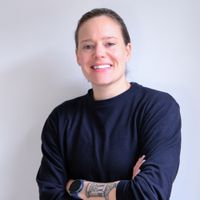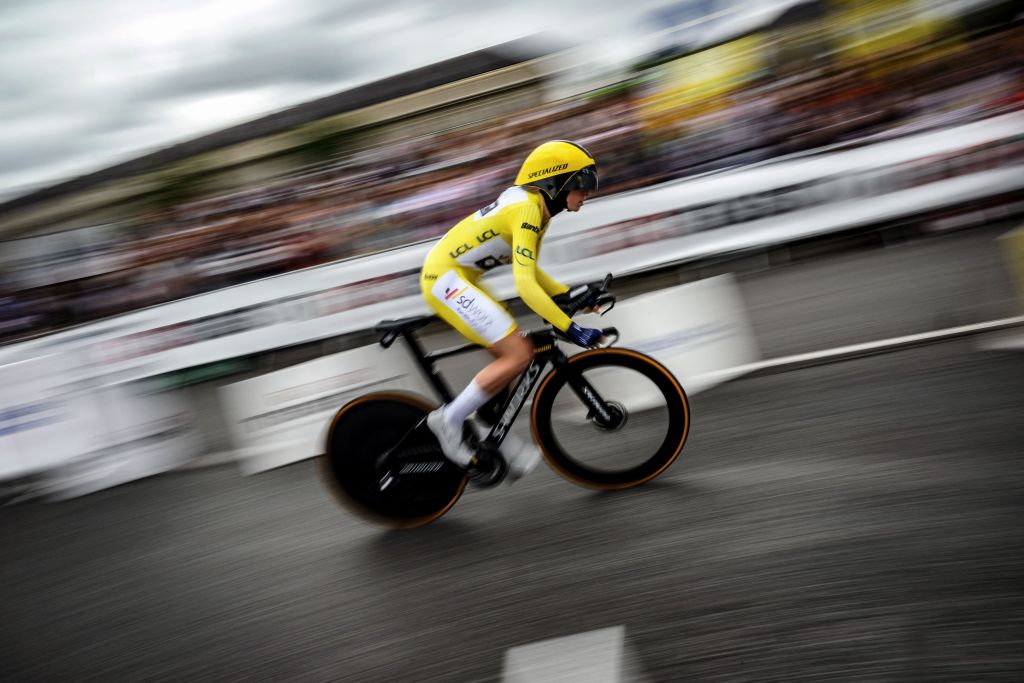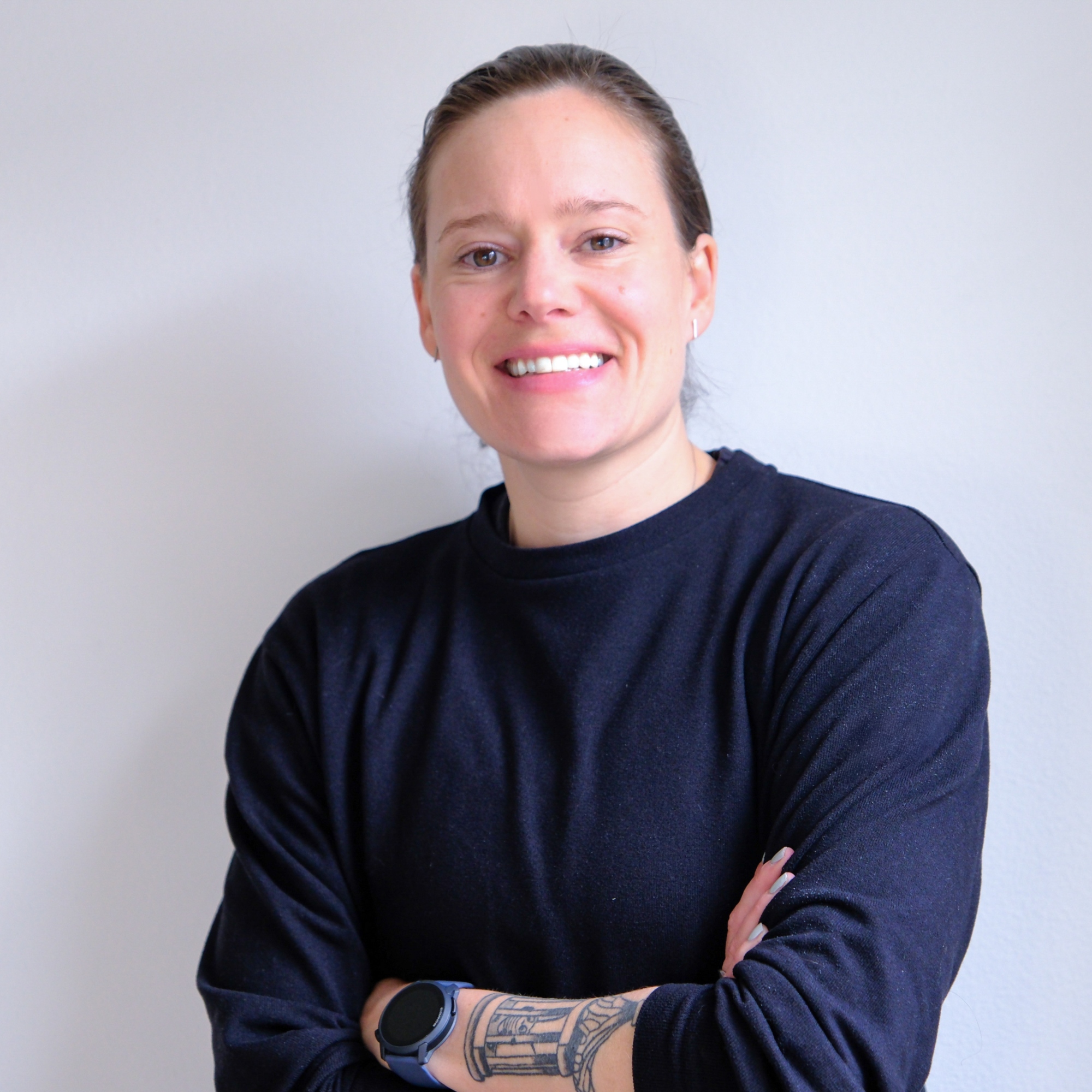'I just try to survive': Two races in one day at Tour de France Femmes divides opinion
Split stage promises double the spectating fun, double the stress for staff and riders


For the organisers, Tuesday’s split stage at the Tour de France Femmes avec Zwift may be a nod to a once-popular but long-dormant tradition, but it’s stressful for the riders and a pain for staff.
Still quite common in lower-level races, a split stage is where two separate races are held on the same day. It’s frequently a combination of a time trial and a short road race or a criterium.
The last time this format appeared in the Tour de France was in 1991, when day two of racing consisted of both a short road race in the morning and a team time trial in the afternoon.
Day two at the 2024 Tour de France Femmes is similar. The first race of the day, Stage 2, was a short and flat 67-kilometer road race starting in quaint Dordrecht and ending in the heart of Rotterdam.
The afternoon race, Stage 3, consists of a flat but twisty 6.3-kilometer time trial through downtown Rotterdam.
With their short distances and unintimidating profiles, the day’s racing doesn’t look so bad on paper – easy, even, when compared to some of the monster stages awaiting the riders later in the Tour.
However, the riders have to deal with cumulative fatigue, tactical complexity and little time for rest and recovery.
The latest race content, interviews, features, reviews and expert buying guides, direct to your inbox!
The morning’s race lasted less than two hours and ended as expected, with a fast dash for the line in the Tour’s second sprint finish, won by yellow jersey wearer Charlotte Kool. But it has also been tense. The technical nature of the narrow and obstacle-filled roads and the race jitters resulted in a crash-marred race. More than a few riders came across the line looking a tad battered and less than enthused to have to race another stage in a few hours' time.
“It’s the Tour. Everyone’s super nervous and really wants a good result. Everyone’s in shape and wants to show themselves. It’s the Netherlands, so super narrow, twisty roads mixed with nervousness,” explained Anna Henderson (Visma-Lease a bike), sporting a bloody elbow after Stage 2.
“These two days were always going to be my most tasking days. I just try to survive,”
Getting caught up in an early crash on Stage 2 was more of an annoyance to Henderson than truly bothersome, which is lucky as the afternoon time trial is meant to be her moment to shine. After winning the silver medal in the Olympic time trial just a couple of weeks ago, the Tour’s short but only time trial is part of her target for the week.
"The TT is half of focus," she said. "That, and I'm here to support our GC rider and Marianne [Vos] in going for the stage wins." With the latter duty completed for the day, Henderson's focus now shifts to patching up her elbow and collecting herself for a good showing in the afternoon race against the clock.
For the specialists and GC hopefuls, the physical and mental toll of racing in the morning and then doing another race in the afternoon is taxing. One has to cool down, refuel and prepare for an afternoon time trial, which comes with an outfit and gear changes, a recon of the course, a solid warm-up and a recovery process of its own. The body's need for rapid recovery between stages adds a layer of difficulty not present in single-stage days. It also adds a tactical element of balancing efforts, making split-second decisions on when to push hard and when to conserve energy with the day's second race in mind.
Meanwhile, the staff is also doing double duty. Even if the race could be completed in as little as 10 minutes, many of the riders will use specialist time trial bikes and equipment. Bringing the added gear and hauling it across three countries requires extra vehicles for transport and more storage space at hotels, as well as extra mechanic time in setup and maintenance. All this adds to the operation's cost as well.
Many of the riders we spoke with weren't keen on the split stage. Even time trial expert and Team Pursuit gold medalist Kristen Faulkner could do without it, preferring a day dedicated specifically to the time trial discipline.
GC hopeful Juliette Labous, however, said she considers them her strength, pointing to her experience in the Healthy Aging Tour, a Dutch stage race that was part of the UCI Women's WorldTour until 2021 and often featured split days.
"It's been a long time actually that I did it, but I think it can help me because you need to recover really fast and that's one of my qualities. I think you need to be focused and also have a really good plan for the day, timing-wise. For me, yeah, it's quite fine," she said.
Demi Vollering (SD Works - Protime), who's favoured to clinch the win once the Tour moves into the mountains, said she didn't care for the idea of a split stage at first but post-race, bolstered by her win, said it was ok after all.
"This morning was a bit scary because everybody crashed towards the finish, but actually, it was ok."

Cycling Weekly's North American Editor, Anne-Marije Rook is old school. She holds a degree in journalism and started out as a newspaper reporter — in print! She can even be seen bringing a pen and notepad to the press conference.
Originally from the Netherlands, she grew up a bike commuter and didn't find bike racing until her early twenties when living in Seattle, Washington. Strengthened by the many miles spent darting around Seattle's hilly streets on a steel single speed, Rook's progression in the sport was a quick one. As she competed at the elite level, her journalism career followed, and soon, she became a full-time cycling journalist. She's now been a journalist for two decades, including 12 years in cycling.